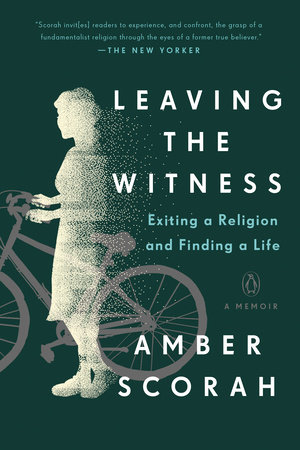Reference




OpenAI's Answer
Amber Scorah's upbringing profoundly impacted her eventual apostasy and the resulting shunning she experienced. Raised as a Jehovah's Witness, her life was deeply rooted in the teachings and community of the religion. This upbringing instilled in her a strong sense of duty and belief in the ideological framework of Jehovah's Witnesses, which explicitly discourages dissent and interaction with outsiders.
Upbringing and Belief System
Scorah was deeply immersed in the religious life of a Jehovah's Witness from a young age. The teachings emphasize loyalty to the faith and discourage questioning or critical thinking regarding its beliefs. As a result, community members are often insulated from external influences and secular viewpoints. This environment fostered an all-encompassing dedication to the religion, as described in her interviews and writings:
- NPR Interview: Scorah mentions that the strong beliefs instilled in her compelled her to accept community-imposed consequences, such as shunning, without immediate resistance.
- A significant aspect of her commitment included traveling to China for missionary work, demonstrating her dedication to spreading Jehovah's Witnesses’ doctrines even in challenging environments (Penguin Random House).
Crisis of Faith
While living in Shanghai, Scorah began to question her faith:
- She started to interact with people outside her religion for the first time, which exposed her to new perspectives and critical thoughts. This interaction sowed seeds of doubt about the teachings she had adhered to for so long (The Globe and Mail).
- The intellectual and emotional conflict between her ingrained beliefs and newly encountered ideologies led her to a profound personal crisis, ultimately resulting in her decision to leave the religion.
Apostasy and Shunning
Leaving the Jehovah's Witnesses is not a minor step but a significant shift that carries severe social consequences:
- Scorah was labeled as an apostate, a term used to describe someone who has abandoned their faith. Within Jehovah's Witness communities, apostates are typically shunned, meaning family and friends within the faith are obligated to cut all communications with them (NPR).
- The shunning left her isolated and alone, especially difficult as she was in Shanghai, far from any immediate support that might have helped her transition out of the religious community (Skeptic). She describes the psychological and emotional toll this isolation had on her, reinforcing the tight control the community has on its members even post-departure.
Reflection and Literary Contribution
Amber Scorah has chronicled these experiences in her book, "Leaving the Witness", which delves into her upbringing, her crisis of faith, and the subsequent clarity and courage it took to leave her religious community (Penguin Random House).

In summary, Scorah's upbringing in a strict, insular Jehovah's Witnesses environment significantly shaped her worldview and responses. When she began to question and eventually abandon her faith, the community's rules on shunning and labeling apostates caused profound personal and social upheaval in her life. Her story is a testament to the challenges of leaving a tightly-knit religious group and finding a new identity outside of it.
Follow Up
Related
Which educational program is Amber Scorah currently enrolled in?
What role did Amber Scorah play at ChinesePod between 2007 and 2009?
How did Amber Scorah's personal tragedy influence her activism?
What are some accolades or recognitions Amber Scorah received for her advocacy work?
Why did Amber Scorah move to China and Taiwan as a young adult?